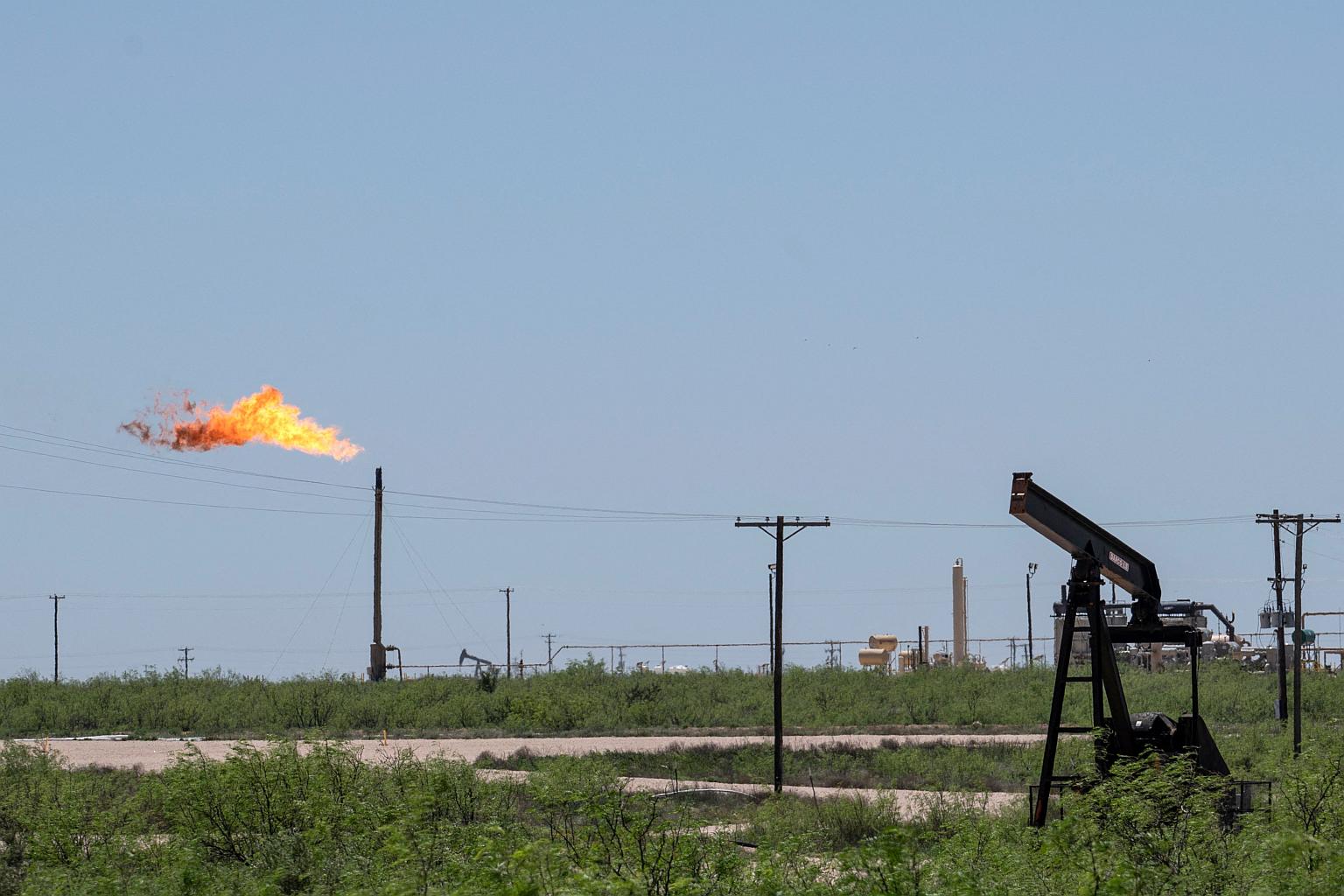Banks provide $5.1 trillion to fossil fuels since Paris climate deal: NGOs
Sign up now: Get ST's newsletters delivered to your inbox

Fossil fuel financing dropped 9 per cent last year as oil output plunged because of the Covid-19 pandemic.
PHOTO: AFP
Follow topic:
PARIS (AFP, REUTERS) - The world's leading banks have provided the fossil fuel industry with US$3.8 trillion (S$5.1 trillion) in financing in the five years following the signing of the Paris Climate Agreement, a group of non-governmental organisations said on Tuesday (March 23).
While financing dropped 9 per cent last year as oil output plunged because of the coronavirus pandemic, the report found that it was still higher than in 2016, the year after the signing of the Paris Agreement where nations agreed to cut back CO2 emissions to limit the rise in global temperatures.
"The overall fossil fuel financing trend of the last five years is still heading definitively in the wrong direction," said the report by NGOs, including Rainforest Action Network, BankTrack, Oil Change International and Sierra Club.
The report called for "banks to establish policies that lock in the fossil fuel financing declines of 2020, lest they snap back to business-as-usual in 2021".
It found that United States banks remained the top bankers to fossil fuel companies last year, with JPMorgan Chase coming in first, followed by Citi and Bank of America.
If their financing for the fossil fuel industry dropped, French banks, in particular BNP Paribas, actually increased their support.
Italy's UniCredit earned top marks for policies to restrict financing for fossil fuels, although the report noted it earned only half the points possible.
It said the findings underscore "that the banking sector remains far from committing to a complete exit from fossil fuel financing".
The report also noted that many banks, like governments and companies, are making commitments to reach net zero carbon emissions by 2050, but have yet to provide plans that do not rely upon lots of offsetting and rosy assumptions about technological advances.
"No bank making a climate commitment for 2050 should be taken seriously unless it also acts on fossil fuels in 2021," said the NGOs.
The analysis found that the 60 largest banks lent more than US$750 billion to 2,300 fossil fuel companies in 2020, down from US$824 billion in 2019. But the report said the fall followed annual rises of 4.4 per cent to 5.5 per cent since 2016.
It also followed a surge in demand from fossil fuel companies raising cheap financing in the first half of 2020, the report said after assessing the roles of banks in lending and underwriting debt and equity issues.
"We must go forward to a world where even without a pandemic, fossil fuel production declines almost as quickly every year for the next decade - as it did in 2020 - but this time in a managed way."
The pace of bank lending to companies with significant greenhouse gas emissions is increasingly under the spotlight as investors push for more detail about their plans to manage climate-related risks and opportunities in their financing portfolios.
This month, HSBC became the latest lender to bow to the pressure when it agreed to phase out support for the coal industry and commit to short- and medium-term targets to align with the Paris Agreement.

